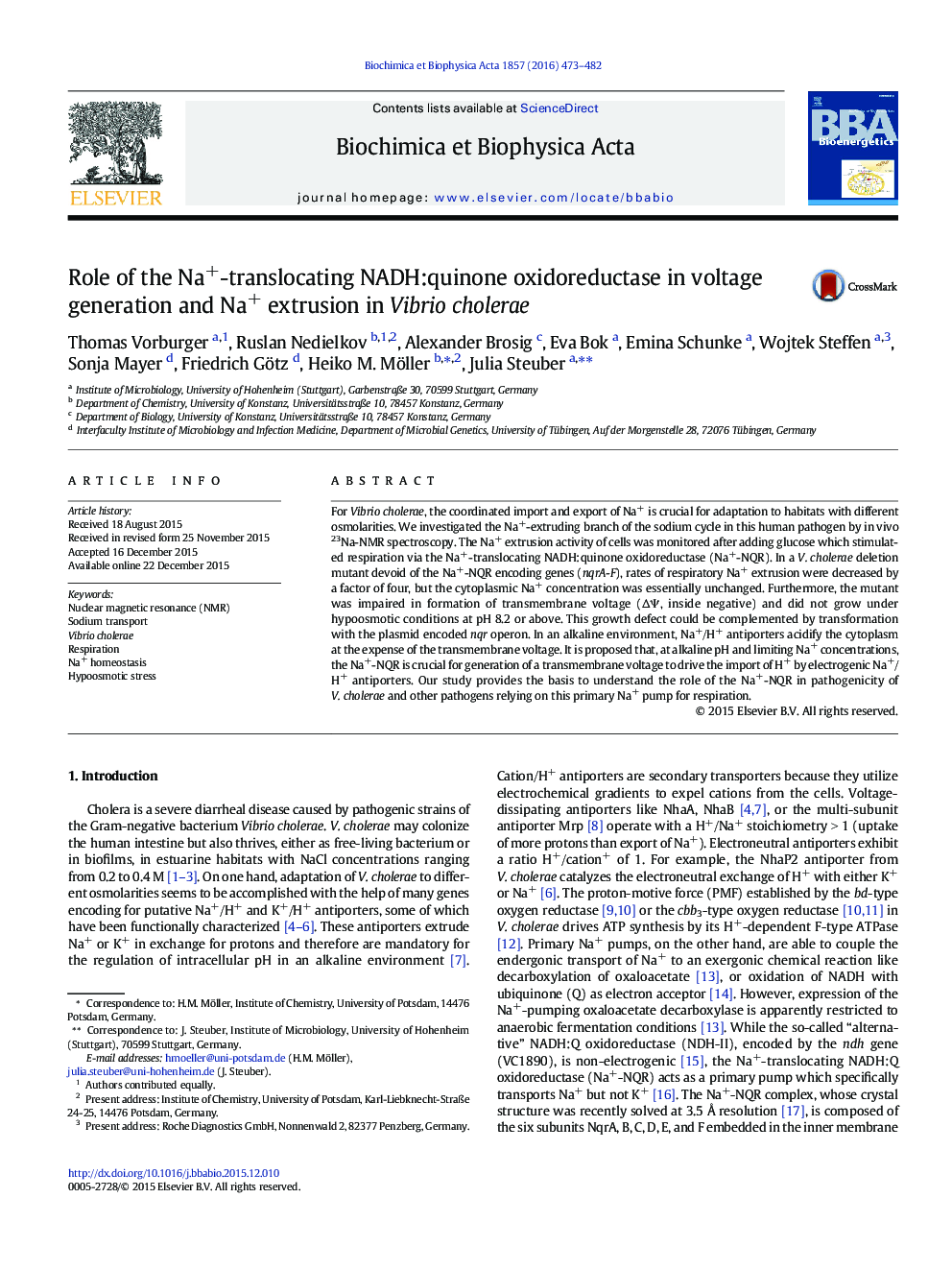| Article ID | Journal | Published Year | Pages | File Type |
|---|---|---|---|---|
| 1941963 | Biochimica et Biophysica Acta (BBA) - Bioenergetics | 2016 | 10 Pages |
•The pathogen Vibrio cholerae operates a Na+-translocating NADH:quinone oxidoreductase (Na+-NQR).•More than 80% of cellular Na+ extrusion and voltage formation is due to Na+-NQR.•At alkaline pH, V. cholerae lacking Na+-NQR grows at high but not at low [Na+].•Na+-NQR drives H+ import by voltage-dissipating Na+/H+ antiporters.•Many other pathogens are expected to rely on their Na+-NQR to produce ΔΨ.
For Vibrio cholerae, the coordinated import and export of Na+ is crucial for adaptation to habitats with different osmolarities. We investigated the Na+-extruding branch of the sodium cycle in this human pathogen by in vivo 23Na-NMR spectroscopy. The Na+ extrusion activity of cells was monitored after adding glucose which stimulated respiration via the Na+-translocating NADH:quinone oxidoreductase (Na+-NQR). In a V. cholerae deletion mutant devoid of the Na+-NQR encoding genes (nqrA-F), rates of respiratory Na+ extrusion were decreased by a factor of four, but the cytoplasmic Na+ concentration was essentially unchanged. Furthermore, the mutant was impaired in formation of transmembrane voltage (ΔΨ, inside negative) and did not grow under hypoosmotic conditions at pH 8.2 or above. This growth defect could be complemented by transformation with the plasmid encoded nqr operon. In an alkaline environment, Na+/H+ antiporters acidify the cytoplasm at the expense of the transmembrane voltage. It is proposed that, at alkaline pH and limiting Na+ concentrations, the Na+-NQR is crucial for generation of a transmembrane voltage to drive the import of H+ by electrogenic Na+/H+ antiporters. Our study provides the basis to understand the role of the Na+-NQR in pathogenicity of V. cholerae and other pathogens relying on this primary Na+ pump for respiration.
